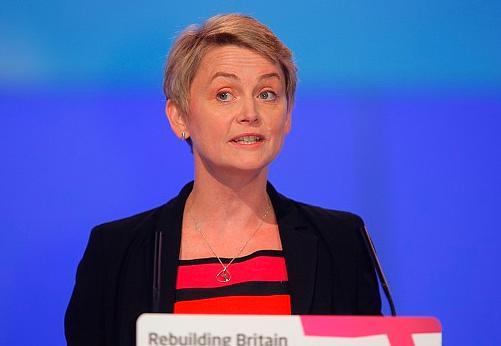By Ben Kerrigan-
Senior Labour MP, Yvette Cooper says Theresa May privately does not want a no deal and is relying on parliament to take action.
Cooper, who chairs the home affairs select committee, is in the process of presenting an amendment to a government motion on Monday w to extend article 50 beyond the sate of March 29. The plan is said to be the brainchild of the former Tory minister Nick Boles, and has backing from other senior Tories Sir Oliver Letwin and Nicky Morgan.
Another backbench proposal from the former attorney general Dominic Grieve could lead to indicative votes being held in the Commons to scope out a consensus, or to the prioritising of proposals from a minority of 300 MPs from at least five parties.
Grieve’s amendment would in effect give parliament the power to hold “indicative votes” on which Brexit options can command a majority in parliament, such as a Norway-style deal or a second referendum. Previously a majority has been needed to push forward such debates.
May held a conference call with her cabinet on Sunday evening and is due to make a statement to the Commons on Monday, announcing plans to continue to strive to achieve a viable deal with the EU. At the moment, EU chiefs have shown no signs to revise their deal for Brexit with Britain.
Cooper accused the prime minister of not showing leadership qualities during an interview with BBC Radio 4. She said
“My sense is that there are government ministers, including cabinet ministers, and I suspect even the prime minister herself, who want parliament to do this,” she told BBC Radio 4’s Today programme.
“She knows that she should rule out no deal in the national interest, because it would be so damaging. She’s refusing to do so, and I think she is hoping that parliament will do this for her. That is not leadership”. Meanwhile, the International Monetary Fund (IMF) warned about the economic risks of a no-deal Brexit to the U.K. Stating its 2019 growth forecast at 1.5 percent, the IMF warned of “substantial uncertainty” surrounding the estimate.
“This baseline projection assumes that a Brexit deal is reached in 2019 and that the U.K. transitions gradually to the new regime,” the IMF said in its World Economic Outlook Update on Monday. “However, as of mid-January, the shape that Brexit will take remains highly uncertain.”




